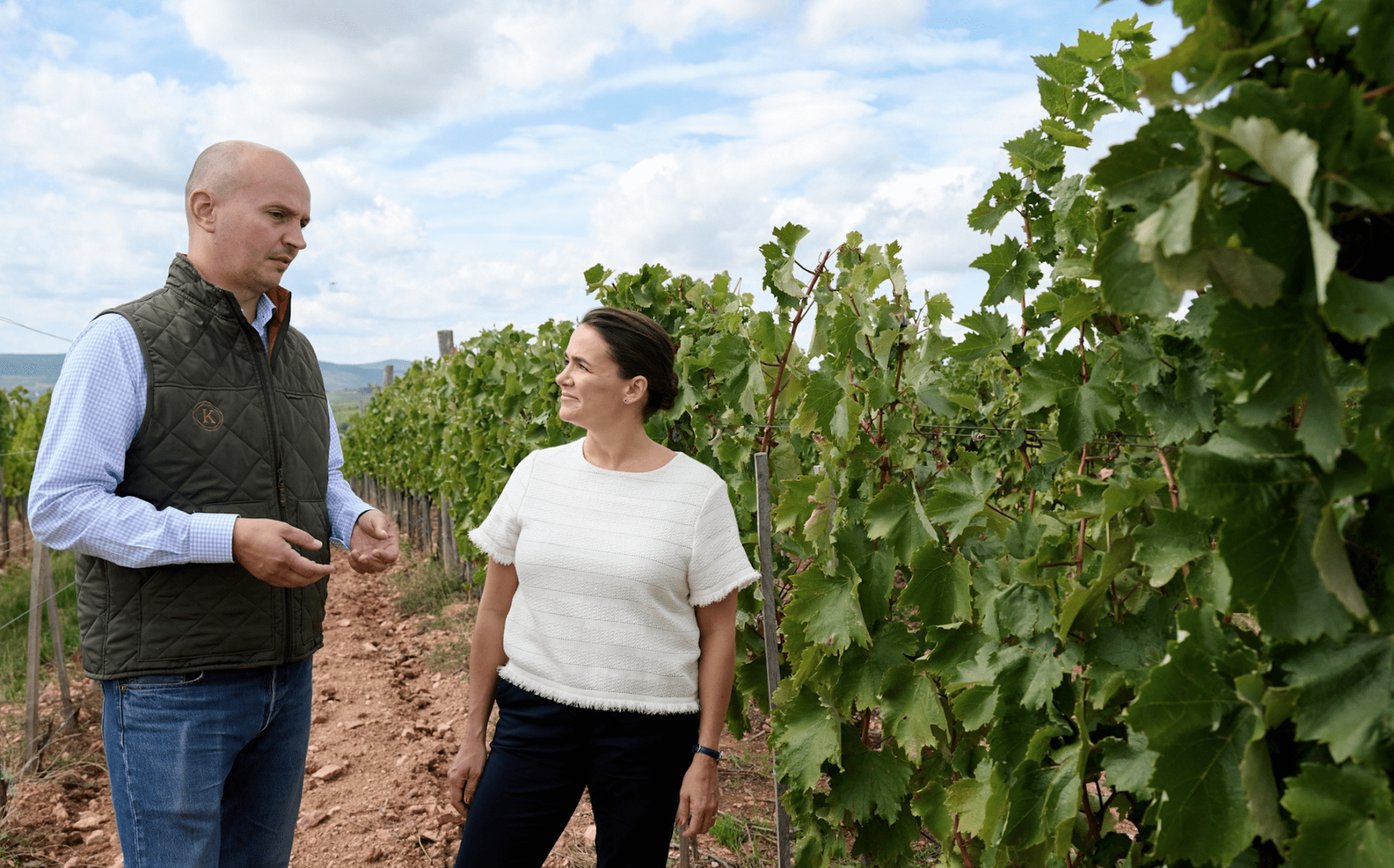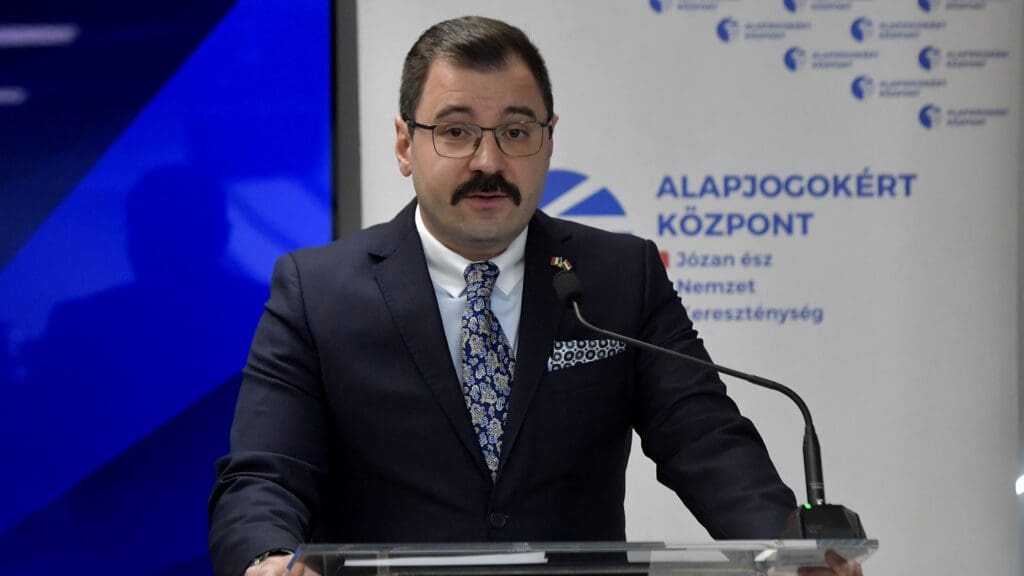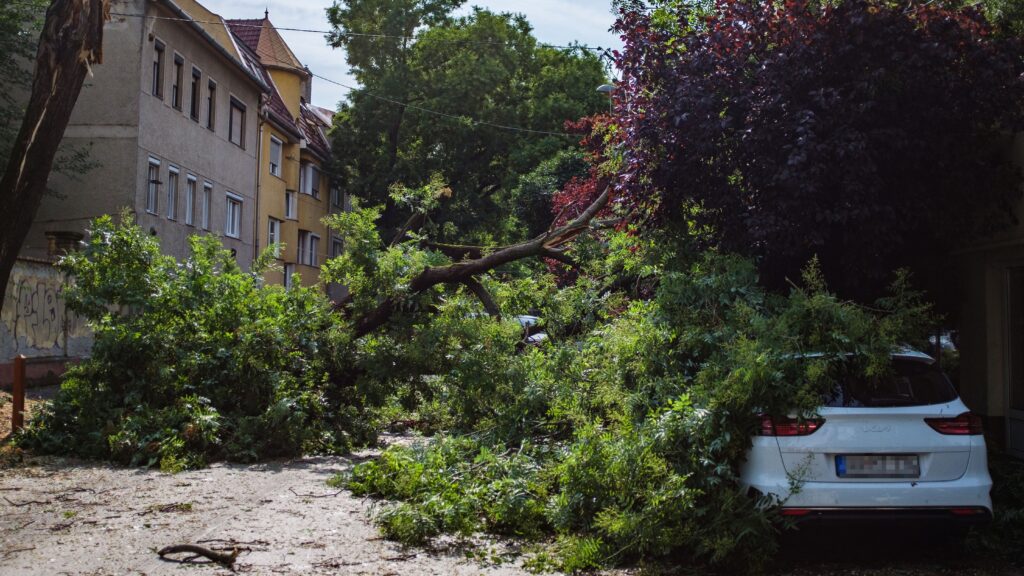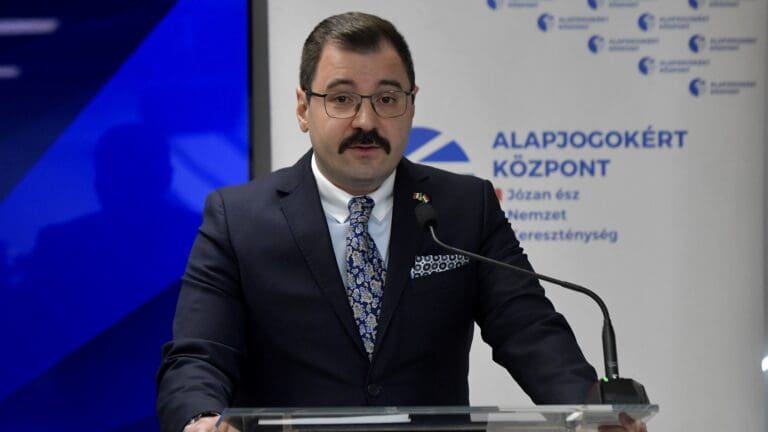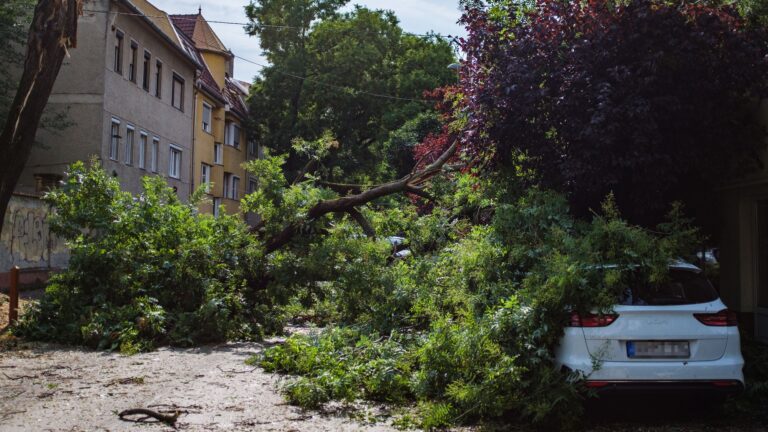The Award
On 16 October, at one of the world’s most exclusive wine competitions, the Golden Vines Awards 2022, the Hungarian Szepsy winery won the Best European Wine Producer category, while István Szepsy Sen. also received the Golden Vines Hall of Fame award.
This year Florence, Italy, hosted the award ceremony, where prizes were awarded in nine categories. The prestigious title of the Best European Wine Producer of 2022 was awarded to the Szepsy winery of Mád, Eastern Hungary. The winery’s manager, István Szepsy Junior, claimed that the accolade was unique in many ways. First of all, the jury consisted of the world’s best wine producers, giving the prize tremendous global exposure. In addition, no one from Hungary, or even from the surrounding area, has ever been nominated in any categories.
The leading winemakers of Dom Pérignon and Domaine Arnoux-Lachaux, Gabriele Gorelli, the first Italian Master of Wine, and István Szepsy Jr, head of the Szepsy Winery, also held masterclasses, giving professional presentations in the Hall of Mirrors of Palazzo Tornabuoni during the last three days of the event. During his presentation, Mr Szepsy served Furmint wine brought from the family’s vineyards in Mád. To decide on the recipient of the awards, 943 eminent wine experts from 106 nations conducted a thorough survey—56 Masters of Wine, 32 Master Sommeliers and 72 Advanced Sommeliers took part in the voting.
The Winery
Last year, István Szepsy was featured in the profile video made as part of the HungarICON series of the Friends of Hungary Foundation. Mr Szepsy explained that the family has been working with vineyards since the 16th century, and in 1631, they received a title of nobility. In the short film, father and son talked about the family and business traditions, their attitude to work and their future goals.
The Szepsy vineyard in Bodrogkeresztúr reminds us that the Szepsy family has been living in the Tokaj Mountains from as early as the 16th century. In 1632, Emperor Rudolf II granted them a certificate of nobility and a coat of arms. Therefore, renowned winemaker István Szepsy has called this place his home since birth. Even after the war, the family had a small vineyard, an orchard and a farm, and they kept animals. However, their assets had to be sold gradually—that was the only way the ‘family business’ could survive. István Szepsy and his son, István Szepsy Jr, today manage 22 properties in Mád with a total of 65 hectares of vineyards in the Tokaj Wine Region.
In the Szepsy vineyards, an average of 38,000 bottles of dry wine, 7,000 bottles of Aszú and 12,000 bottles of Szamorodni, wines traditional to Tokaj, are produced annually. Most of the soils used in the vineyards are zeolite, quartz, clay and weathered volcanic-origin rhyolite tuff, which has become even more porous due to heat sources. Besides, thanks to the runoff of precipitation, roots penetrate there very deeply. The climate is characterised by scorching summers, long autumns, and mild and dry winters, with an average annual amount of precipitation of 550 mm.
A Vision
In the video mentioned above, while walking up the Tokaj hill, Mr Szepsy Senior also says that 30 years ago, he had a vision that Tokaj would become the leader among Hungary’s historic wine regions, and that his family’s winery would play a key role in that. After graduating from college, he was hired as Mád’s head gardener, but he did not enjoy his work in the ‘Communist factory’ and decided to move to France instead. In the end, he became homesick and thus returned to Hungary, and from then on, he worked in a cooperative, where he tried to grow as much grapes as possible. ‘I fulfilled the duty expected of me,’ Mr Szepsy recounted. The winemaker also talks about the difficulties of viticulture in the short film, noting that in the last ten years they have managed to produce Aszú only three times.
‘Your spiritual strength only comes from the fact that you are deeply attached to the wine, and that you can bear it if nothing has grown,’ he says. Wine was the ‘sacred cow’ for his father and grandfather, for whom it was unthinkable not to give up everything for the vine. According to Mr Szepsy, the family’s 400-year history has given him not only knowledge, but also a mindset. As to the chances of future growth, he emphasises: ‘You cannot make progress if you do not take new risks with new techniques and pricing.’
He also stresses that the energy of the love permeating the wine—the value added by humans—has a great impact on the quality. The vine is seen as a co-creator, in which the earth’s minerals, plants, animals, and humans all play an equal role and who must not be exploited by each other. He and his family, he remarks, try to live their lives in peace. At the end of the short film, Mr Szepsy talks about the power of perseverance and how it allowed them to achieve their goal of becoming one of the greatest winemakers in the world.
Hungarian President Katalin Novák personally visited the winery to express her appreciation for the success of the winemakers, too. She wrote on her social media page that the award can rightfully make the Hungarian winery proud and congratulated the family and István Szepsy Senior.

